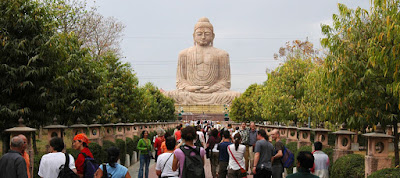Yamas of the Yoga Sutras

I have been thinking about the yamas, also known as abstentions or ethical restraints. The five yamas are ahimsa (non violence), satya (truthfulness), asteya (not taking what is not given to you), brahmacharya (celibacy), and aparigraha (renunciation of unnecessary possessions) (243). Ideally, according to Vyasa (a commentator on the yoga sutras), all other yamas are for “purifying ahimsa” (nonviolence). This first limb, along with the second limb of niyamah (moral constraints) are thought to correspond with karma yoga, says Iyengar in the foreword (ix, directly after table of contents). According to the Bhagavad Gita, any one of the four yogas, karma, jnana, bhakti, and raja, is capable of leading to enlightenment. Karma yoga is the path of action, following your dharma and observing ethical and moral constraints. Through practicing karma yoga, you help everything on the path to peace. Hindus believe Hinduism is the key to a fulfilling, happy life; so spreading hinduism to as man...




